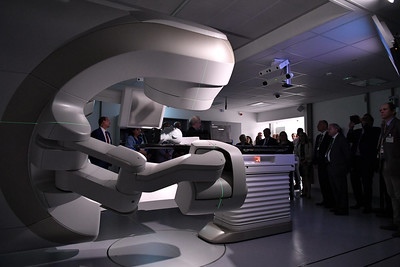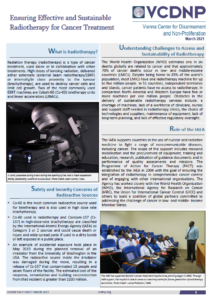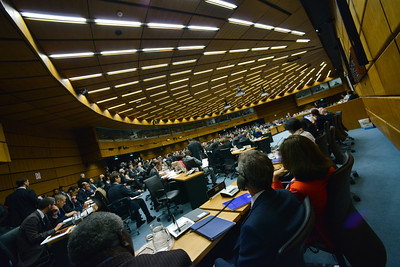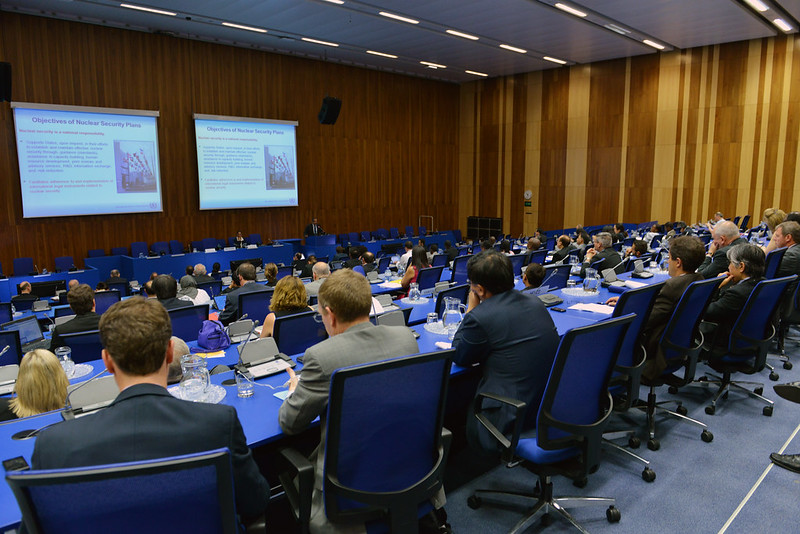
 One is six deaths globally is related to cancer and approximately 70% of deaths occur in low- and middle-income countries. What do these countries need to take into account when choosing between Cobalt-60 teletherapy units and linear accelerators for effective radiotherapy? What are the other building blocks of a sustainable cancer control programme and what is the role of the International Atomic Energy Agency?
One is six deaths globally is related to cancer and approximately 70% of deaths occur in low- and middle-income countries. What do these countries need to take into account when choosing between Cobalt-60 teletherapy units and linear accelerators for effective radiotherapy? What are the other building blocks of a sustainable cancer control programme and what is the role of the International Atomic Energy Agency?
A new fact sheet authored by VCDNP Senior Research Associate Ingrid Kirsten sheds light on these issues, explaining some of the concerns related to radiotherapy equipment, including safety and security issues. The fact sheet tells the story of Zambia’s national cancer control programme and how it revolutionised cancer diagnosis and treatment in recent years.
The fact sheet builds on a workshop held by the VCDNP on 17 February 2021, which aimed to promote dialogue on the challenges to and opportunities for ensuring access to nuclear technology for human health, especially for cancer control.
Featured image courtesy of Dean Calma / IAEA.

